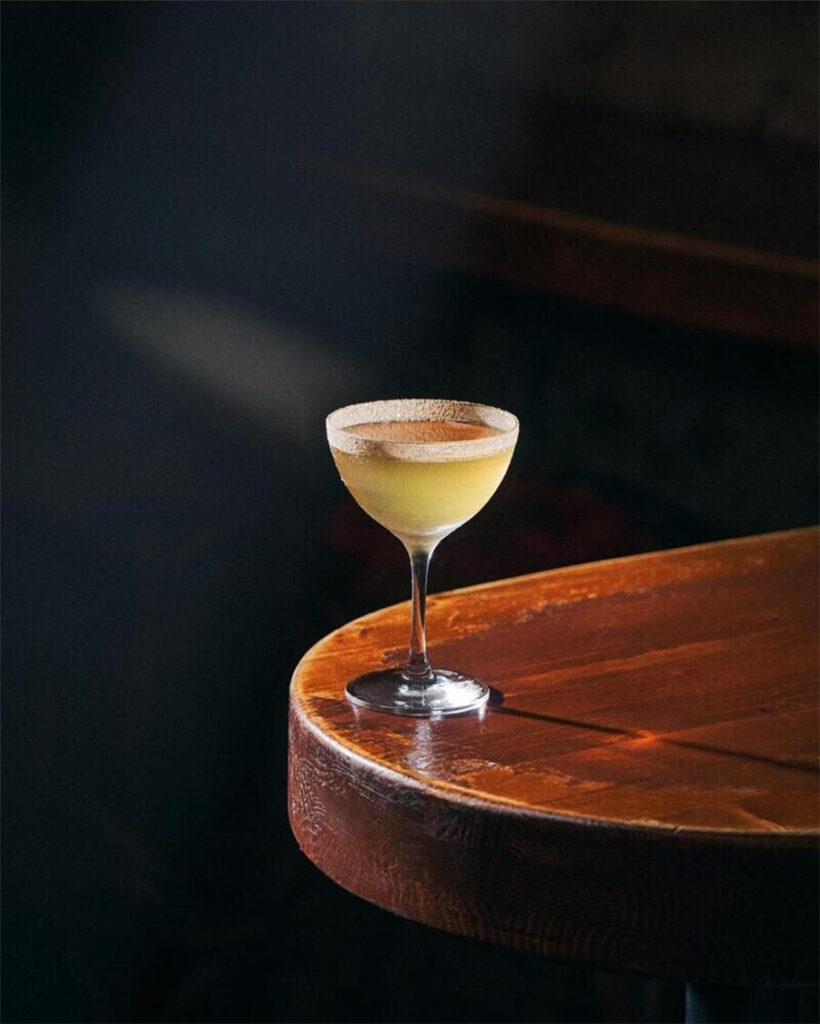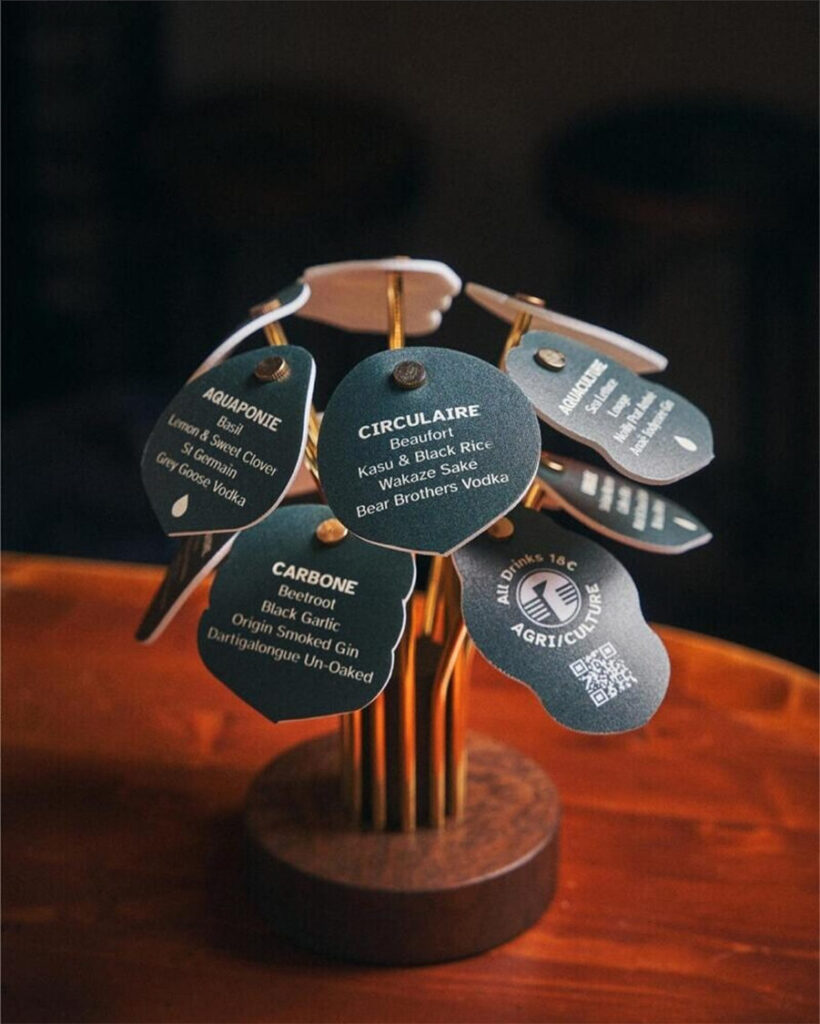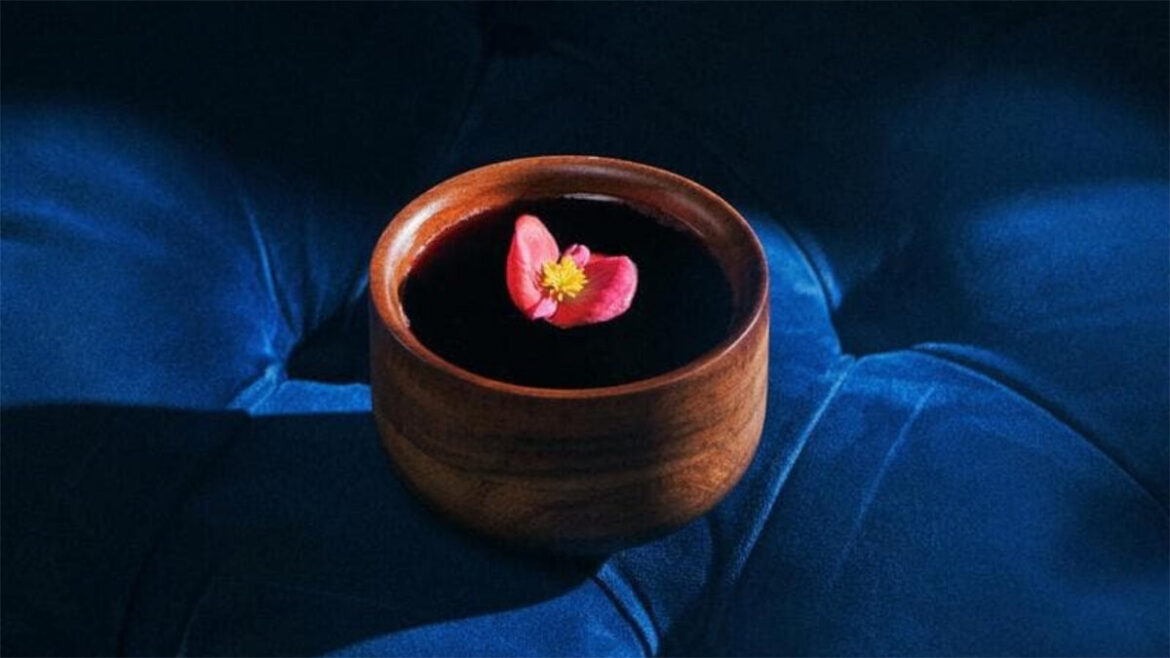Paris has no shortage of great drinking destinations, but Little Red Door has built its reputation on doing things differently. Ranked among the world’s best cocktail bars, it has become a temple of innovation where drinks are less about fleeting trends and more about cultural conversations. For its latest menu—launched this month—the team turns its gaze to agriculture, unveiling 11 cocktails inspired by sustainable farming methods that are shaping the future of food and drink.
The concept, titled Agri/Culture, bridges the world of farming and mixology. Each cocktail highlights a specific farming practice—permaculture, aquaponics, agroforestry, aquaculture, solar greenhouses—and pairs it with an “ambassador” ingredient sourced from French producers pioneering those techniques. The idea is to serve not just a drink, but also a story about the soil, the sea, and the communities that sustain them.
Aquaponics in a Glass

Take Aquaponie, for instance, a light and herbaceous mix of basil, lemon zest, St-Germain, and Grey Goose Vodka. Basil is one of Europe’s most water-intensive herbs, but when cultivated at Jaden in Chantilly—an aquaponics farm where fish nourish the plants and plants purify the water—it thrives in a regenerative loop. The cocktail becomes both a refreshing aperitif and a case study in circular farming.
Solar Greenhouses and Cognac
Another standout, Serre Solaire, marries black tea, green nut, milk, Cointreau, and Rémy Martin Cognac. Its inspiration is the solar greenhouse, specifically the work of Jean-Marc Sanchez at Les Plantations d’Acapella in southern France, where tea plants thrive under glass powered by the sun. The drink feels both delicate and robust, a reflection of the farming method itself.
The Depths of Agri/Culture

The rest of the menu continues to experiment with equally ambitious pairings. Aquaculture combines sea lettuce, lovage, and Anaë Dulse Gin, while Urbaine brings shiitake mushrooms, roasted coffee, malt, and Ninkasi Whisky—ingredients sourced from Cycloponics, an urban farm built in a former car park.
Carbone highlights the regenerative power of beetroot, pairing the root vegetable with black garlic, smoked gin, and Dartigalongue Un-Oaked Armagnac. Régénératrice draws from farming techniques that promote carbon sequestration, with chicory, barley, and Dolin Bitter forming its earthy, complex base.
More Than Just a Menu
For co-owner Hyacinthe Lescoët, the project is not simply about cocktail creation. “Since the start of the year, we’ve been working closely with producers and farmers across France to spotlight their practices and weave their stories into our cocktails,” he explained. “For us, it’s more than just a menu; it’s a conversation about how agriculture shapes society, and how together we can imagine a more sustainable future.”
That phrase—agriculture shapes society—gets at the heart of Little Red Door’s ambition. The bar has always pushed beyond aesthetics and flavor into something broader, a sense of place and purpose. With Agri/Culture, the team reminds us that even a drink in a glass can be a lens into the hidden systems that sustain us.
For cocktail lovers traveling to Paris, the message is clear: this is more than a new menu launch. It’s a manifesto in liquid form, best experienced one glass at a time at Little Red Door.
For more information, head over to Little Red Door’s official website.



